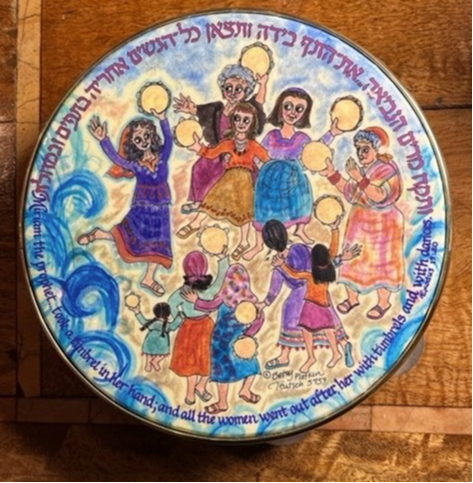
by Phyllis Chesler
This parsha is special to me for three reasons.
First, my son, my most beloved son—indeed, my only child—leyned this parsha for his Bar Mitzva 32 years ago. He did not make a single mistake. All I had to do was sit there shepping nachas.
Second, in Shmot, my experiences of being mocked, turned on, by the very women whom I was trying to free, were clarified for me earlier in Shmot (in Va-eira). I learned that this is what happens when one is privileged enough to try and liberate another human being from an intolerable, even dangerous situation. If this can happen to Moshe Rabeynu, God’s chosen liberator, who am I to complain? Or to expect anything different? Moshe had to learn, again and again, that slaves are afflicted with “kotzer ruach” (6:9), a shortness of spirit, vision, breath, engendered by the exhaustion of hard labor and a life of no exits.
Third: This parsha is special because it reminds us that we are all big-time complainers, even when we are surrounded by miracles. Although we’ve just witnessed the ten plagues and are now three days out of Egypt, we remain terrified as we stand at the edge of the sea. Famously, we complain to Moshe. “Were there not enough graves in Egypt that you took us out to die in the desert? (14:11). This is exactly what we told you in Egypt, saying: Leave us alone and let us serve the Egyptians” (14:12).
After God parts the Red Sea; after our safe and miraculous crossing; even after being led, both day and night, by God’s pillar of cloud and God’s pillar of fire (13:21); even after the destruction of Pharaoh’s army—there we are, complaining about not finding water: “What shall we drink?” (15:24). And again, (16:3), like slaves, whose every need has formerly been met, we “complain” when our bread supply has dried up.
Hot, bitter words: “If only we had died by God’s hand in the land of Egypt where we sat by pots of meat and ate our fill of bread.” And again, the people cry out for water: “Why did you bring us up from Egypt—to kill me and my children and my livestock with thirst?” (17:3). Finally, Moshe is afraid that he and his brother will be stoned (17:4).
We are blinded by fear and by faithlessness.
And yet, mixed in with all these complaints, our people are also filled with extraordinary joy. Moshe sings with the men. Miriam sings and dances with the women, “b’micholot,” in holy circles. Let us hold onto this very moment—and remember that there is no point in complaining, the journey ahead will be long and hard, and we will have to learn how to better fend for ourselves—of course, with God’s eternal help.
Good Shabbos to one and all.
- Like
- Digg
- Tumblr
- VKontakte
- Buffer
- Love This
- Odnoklassniki
- Meneame
- Blogger
- Amazon
- Yahoo Mail
- Gmail
- AOL
- Newsvine
- HackerNews
- Evernote
- MySpace
- Mail.ru
- Viadeo
- Line
- Comments
- SMS
- Viber
- Telegram
- Subscribe
- Facebook Messenger
- Kakao
- LiveJournal
- Yammer
- Edgar
- Fintel
- Mix
- Instapaper
- Copy Link








2 Responses
What?! God is an imperfect food supply logistics maven! Heaven forbid!
Why not simply dine on the plentiful sand-which-is there? Drink? Drink each other’s tears; the salt is beneficial. And you know I only speak the Truth.
Complaints are unheard communication.
We should strive to listen fully to what we are being told.